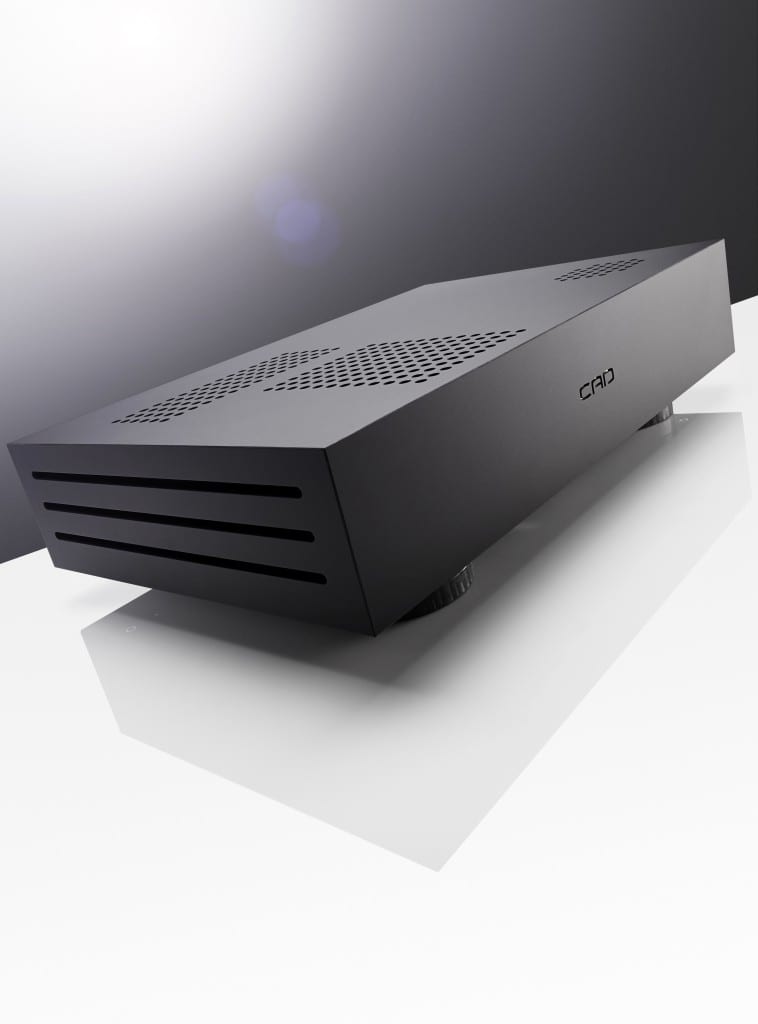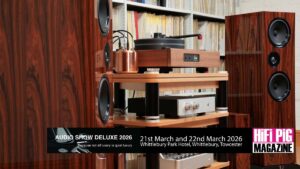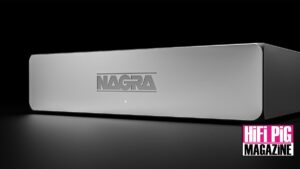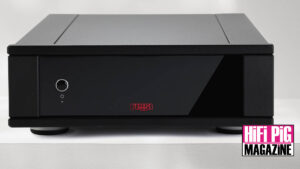Computer Audio Design Update CAD 1543 DAC
Computer Audio Design’s USB digital-to-analogue convertor (DAC) has been upgraded. Computer Audio Design has announced a refit to its CAD 1543 DAC, now using proprietary EMI/RFI reduction materials, improved DAC circuit boards, single-crystal UP-OCC internal wiring and refined power supply filtering, to create the CAD 1543 MKII DAC. 
CAD is one of a handful of digital audio companies offering resistor-ladder DAC technology, along with no oversampling and no filtering, which CAD believes offers a distinctively different sound than most digital audio products on the market today – a sound that is tangibly closer to the original performance they say.
The CAD 1543 MKII DAC takes its name from the application of an increasingly rare resistor-ladder convertor chip, the Philips TDA1543/N2, with its selected 16 devices now mounted on a revised four-layer circuit board. This new layout minimises intrinsic noise, optimising the chips’ specifications to now allow native conversion of 192 kHz PCM audio.
And where most conventional modern D-A convertors employ over-sampling techniques and a digital interpolation filter, the CAD DAC unashamedly adopts the non-oversampling (NOS) approach in order to protect precious timing resolution. With no filter to ring and smear the fundamental timing of impulsive data – the shape of natural music – the 1543 MKII brings to life both the subtle and macro dynamics of recorded sound.
The hyper-minimalist design is engineered with the fewest number of switches and connectors between mains plug and output sockets. It features a single USB 2.0 input that galvanically isolates the 16 TDA1543 chips from a connected PC. The analogue output sees a single pair of low-mass pure copper RCA phono sockets wired directly to the chips through a passive I/V stage. The summed output of paralleled multi-bit convertor chips means there is no need for additional signal amplification or buffering, thereby removing unnecessary signal stages.
Signal wiring has been updated to single-crystal OCC (Ohno Continuous Casting) copper, custom manufactured to CAD specifications. The casework retains its laser-cut 10 mm-thick acrylic construction – available in black as standard or other colours to special order– and is now supplemented with internal RFI/EMI materials to reduce the effects of high-frequency interference on the circuit boards and their ground planes.
Further fighting the insidious effects of EMI/RFI, Computer Audio Design has redesigned the power conditioning at the unit’s power input, helping minimize AC line noise from the DAC; as well as isolate neighbouring audio components from any residual digital noise released by the DAC.
The overall result of such scrupulous attention to power supplies and potential noise sources is an audio convertor that seems to paint ink-black quietness behind the sound. A DAC that preserves and projects the rhythm and drive of dynamic music.
Computer Audio Design 1543 MKII DAC key features:
Five independent transformers feeding five fully discrete linear voltage regulators for the cleanest power to each modular section of the unit.
Custom 10 mm acrylic case selected for superior acoustic properties.
NEW: additional internal EMI/RFI materials to lower electromagnetic interference noise floor.
NEW: redesigned mains power conditioning to reduce ingress and egress of mains-borne noise.
Sixteen Philips TDA1543/N2 resistor-ladder chips.
Filterless NOS design for unparalleled time-domain replay accuracy.
NEW: custom four-layer PCB to support DAC chips.
Passive output stage with Duelund Coherent Audio capacitors and selected US-made audio resistors all made to CAD specifications.
NEW: internal signal wiring upgraded to custom UP-OCC copper.
The 1543 MKII DAC is made in a modular fashion to make future upgrades possible ensuring your investment will last a lifetime.
The CAD 1543 MKII DAC is available now, priced at £7,250 (incl. VAT).
Owners of the original 1543 DAC can opt to have their units refitted to full MKII specification at a cost of just £600.































































